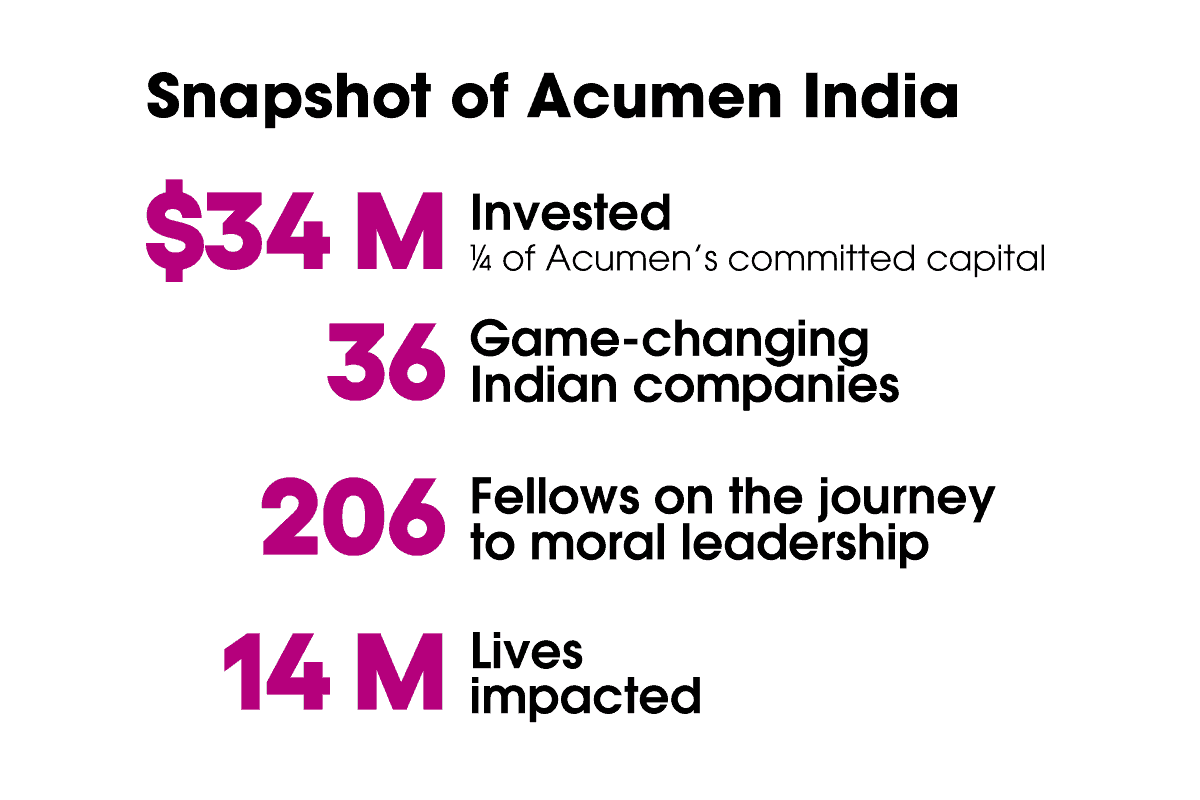Fourteen Days in India with Acumen’s Founder and CEO, Jacqueline Novogratz
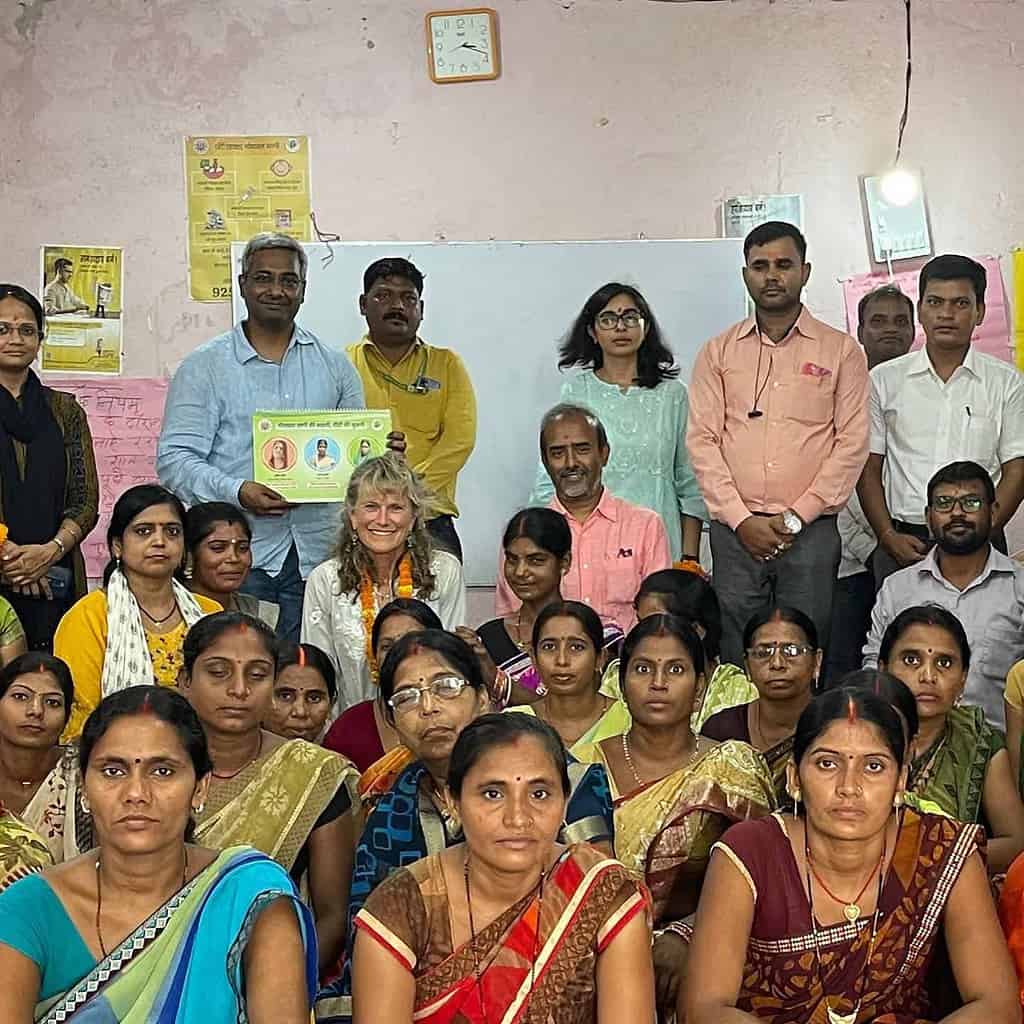
- Blog
- India
Back in 2018, Acumen’s founder and CEO, Jacqueline Novogratz, made a 14-day trip across India to see Acumen’s work with then-newly-appointed County Director, Mahesh Yagnaraman. It was both a significant and special journey because it provided a compressed view of how the first 10 years of Acumen’s investments in the region fared, and it was the first such trip in Acumen’s history.
This summer, Jacqueline was delighted to return to the region for the first time since 2018, again with Mahesh, who has now been Acumen’s leader in India for four years–and to do so with a palpable joy at being able to embrace the Acumen community in person again. Much has changed in the world between those two trips. Acumen has changed, too.
We first invested in India in 2006; now, 16 years later, our influence is widely felt, and entire communities have been impacted thanks to the tireless work of the 206 Acumen India Fellows and 36 local investee companies. Of her trip, Jacqueline noted that she returned with “a renewed conviction that the spirit of these entrepreneurs and Fellows, combined with experience and support of our Acumen team, is exactly what’s needed to achieve the task at hand: to continue building a world that keeps people and planet at the center, and that enables dignity for all.”
What follows are excerpts from Jacqueline’s journals documenting her visit.
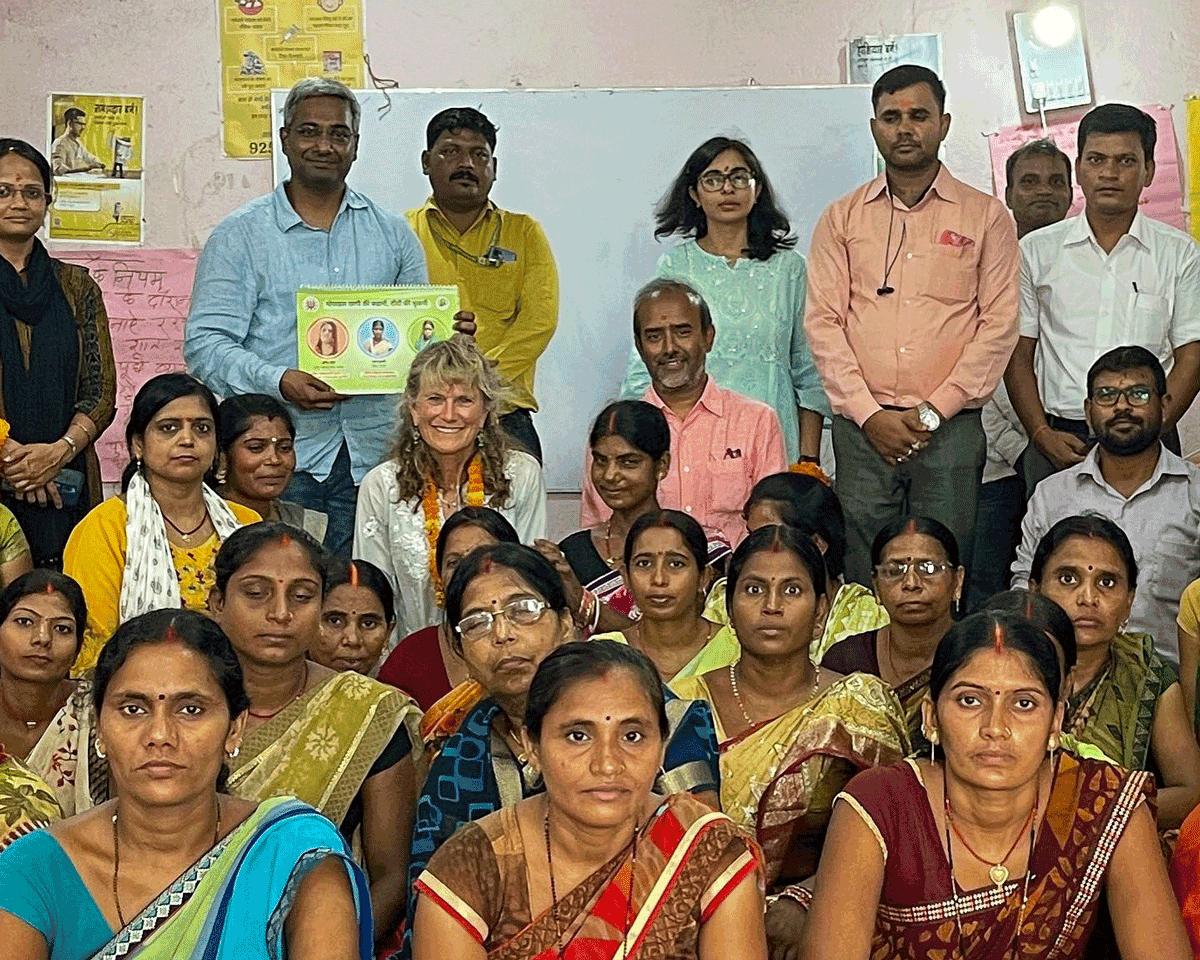
Gram Vaani
A social tech enterprise that builds voice-based community media technologies for the underserved, Gram Vaani was founded by Acumen Fellow Vijay Sai Pratap. We met him early one morning in Patna and then drove together to Nalanda, considered to be the site of the world’s first residential university, to speak with community mobilizers using Gram Vaani’s apps to change their lives—and their communities.
I immediately connected with a group of women who shared with me how empowering it is to hear your own voice and tell your own stories—all while feeling safe enough to speak freely.
A company that turns social media on its head, Gram Vaani is full of content that is created by and for people who understand their communities’ needs and wants. Whether it’s maternal health information for women who couldn’t otherwise access it, or voice-based mobile networks for rural women who face literacy barriers, Gram Vaani has touched over 2 million individuals, enabling them to not just access and share life impacting information, but also voice their opinions.
It’s one of the most profound education and community platforms I’ve ever come across.
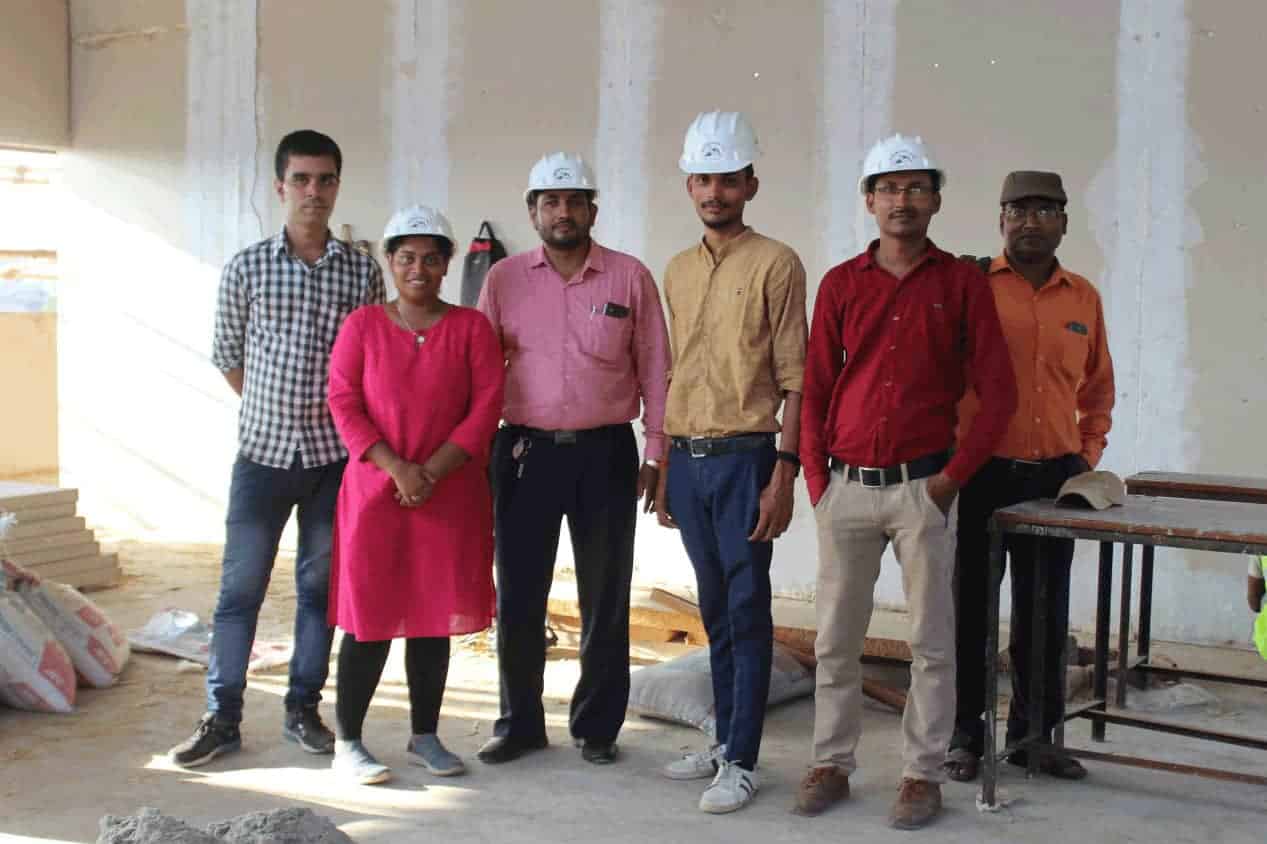
Strawcture Eco
I was immediately struck by the spirit and passion of Acumen Fellows Shriti Pandey, who founded Strawcture Eco, and Prerna Agarwal, who works in Rajasthan with smallholder pastoralists who earn meager incomes raising goats and sheep.
Strawcture uses fiber panels made of agri-residue to make housing more accessible and sustainable for all. Shriti showed us a meditation center built using these groundbreaking products—and while the walls and ceilings are made with Strawcture’s materials, the insulation is made of discarded wool—the result of a beautiful collaboration with Prerna, for together they’ve launched Magra, a joint venture that uses natural fibers that respect people, animals, and earth to create building materials.
They are fearless builders who hold both competence and compassion in the way they approach their work and the world.
Strawcture is an example of a company that is tackling multiple issues at once and using creative collaborations to solve them with a planet-centered approach.
Each agri-bio panel sequestrates 500kg of CO2 and carries a negative carbon footprint; to date, Strawcture has prevented 16,000kg of stubble from being burned into the atmosphere…and it does so while paying farmers about 25% more than they used to earn. The products are remarkable, and already, Strawcture is profitable.

S4S Technologies
Food waste is a tremendous issue not just for the planet but for smallholder farmers who lose out on profit. We stopped by an S4S Technologies collection center, a processing center, and ultimately the company’s central factory to see this innovative work in action.
At its core, S4S is a dried foods company—but it is so much more than that. They sell solar dryers to female farmers who build networks to collect, dry, and process crops, which are then sold directly to buyers. Their dryers eliminate coal- and diesel-fueled dryers, which wreak havoc on the environment, while their model benefits every stakeholder group, including customers who can rely on S4S products to remain fresh for up to a year.
Within the next decade, S4S expects to impact 100 million farmers. And they’re dead serious about including those who’ve traditionally been overlooked.
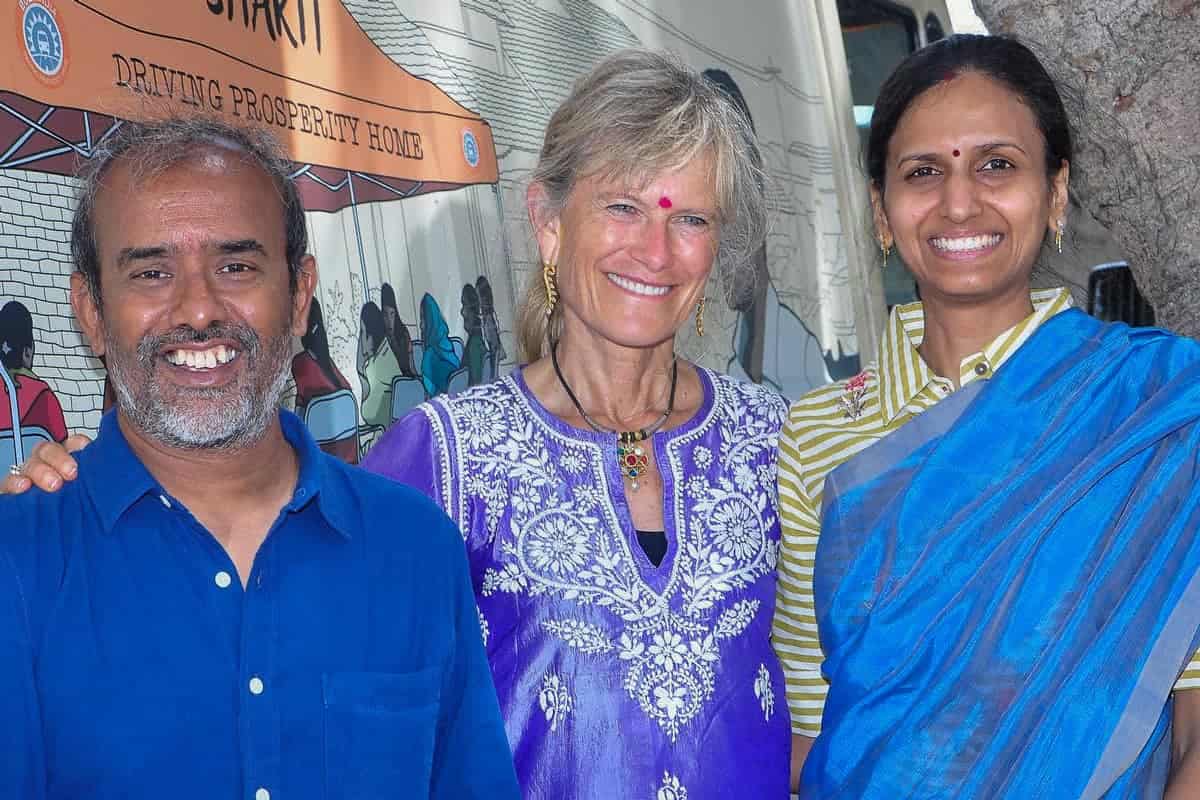
Buzz Women
Uthara Narayanan told it to me straight: “I teach women that the enemy is poverty.” The founder of Buzz Women, which provides financial training and accompaniment to 350,000 low-income rural women through 8,000 volunteers, greeted us in Bangalore. There, we met with a group of women “ghelatis” (“friends”) whose confidence, strength, and sense of community inspired me beyond words.
Through this company, women are trained on managing money—many for the first time in their lives. And since educating women in turn educates families and is a key to disrupting intergenerational poverty, this work is crucial. I still hear the advice from some of Buzz Women’s members in my head: “What am I if I don’t serve others?”
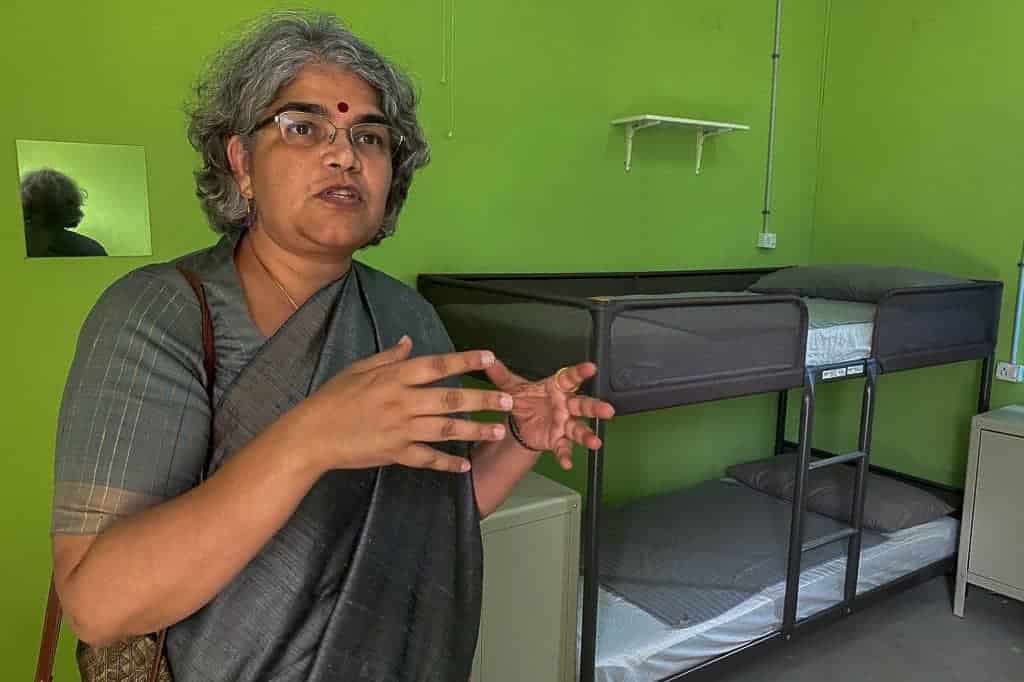
LabourNet
When COVID lockdowns began in India, LabourNet, a workforce development organization that aims to provide livelihood to India’s informal sector workforce, had 100,000 workers in training—mostly boys, they were far from home and suddenly stranded.
To meet the unexpected needs COVID had wrought, Gayathri Vasudevan and Rajesh A.R. pivoted LabourNet entirely, reimagining how it could serve the community. Today, two years after their refreshed vision, LabourNet operates in 320 schools and works with more than 27,000 young people. The company is on its way to reaching their goal of partnering with 1,500 schools and training 1.5 million youth within the next five years.
I recently had the privilege of visiting with Gayathri and Rajesh to see the results of a different kind of project, this one focused on constructing housing for unskilled workers.
Through a grant from IKEA, LabourNet is now experimenting with unique approaches to provide skills training to construction workers, including building dignified housing for 100 migrant workers in Bangalore.
Moral leadership means seeing beyond what is and imagining what could be. Clean, functional housing should be a baseline expectation for workers. And LabourNet is showing how this can be accomplished in ways that also train young people to be part of the solution.
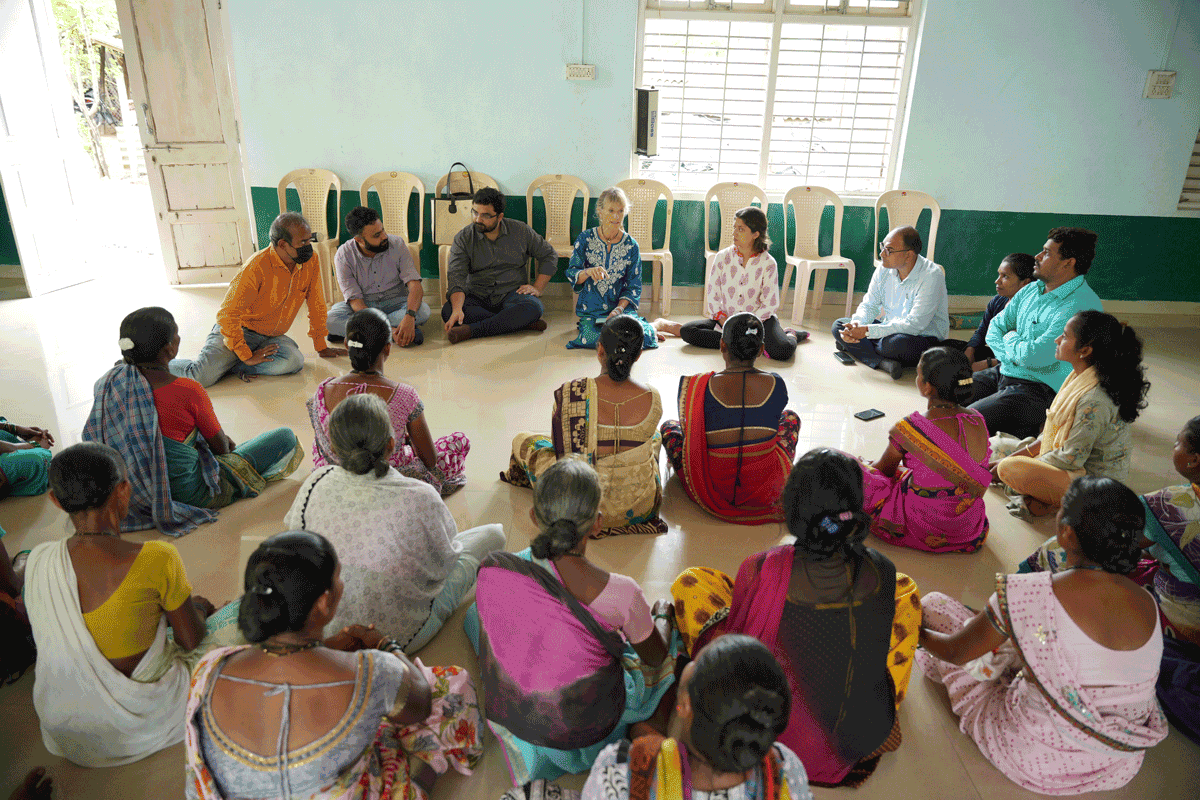
Haqdarshak
As monsoon rains pounded, Aniket Doegar took us to visit Haqdarshak, his platform company that has connected more than 2 million low-income Indians to the 11,000 entitlements the country makes available. What’s remarkable about Haqdarshak is that it shows how access is not enough; individuals require the capabilities to make use of that access. That understanding is what fuels Aniket.
As we sat with women from the lowest castes, I witnessed how unentitled they were, how nervous they appeared. And I was moved beyond measure by Haqdarshak’s agents. They are a young group, many still in their teens, all of them low-income. And they were so energized by their work of connecting people to social services that would help them participate more fully as citizens. I asked if someone could share their own story about dignity. A diminutive 18-year old, dressed in a red kurta and full of passion, shot up her hand.
“A year ago, madame,” she started, “on a day like today with pouring rains, I went to see a woman who’d just lost her husband. I explained her right to widow’s pension – 20,000 rupees. Together, the family and I filled out forms beneath my umbrella. A few weeks later, the widow came to me in the village. She told me she’d received the 20,000. Then she handed me 10,000 rupees, maybe assuming I was a government official who wanted payment. ‘Oh no, madame,’ I said. ‘I do this work because it is my duty. I do this work to be of service. I do not do it for money.’ I understood then that we had both gained dignity. She gained her rightful pension. I gained the feeling of knowing I’d done my duty to my community.”
Acts of moral leadership are all around us. When we dare to see another neither above nor below us but as part of ourselves, we plant the seeds of our mutual transformation. Each of us has the chance every day to work toward that world, to practice dignity, in the way we show up, in how we treat one another and the earth, in how we give, in the causes to which we commit ourselves, in the risks we take for those whose lives are unlike our own.
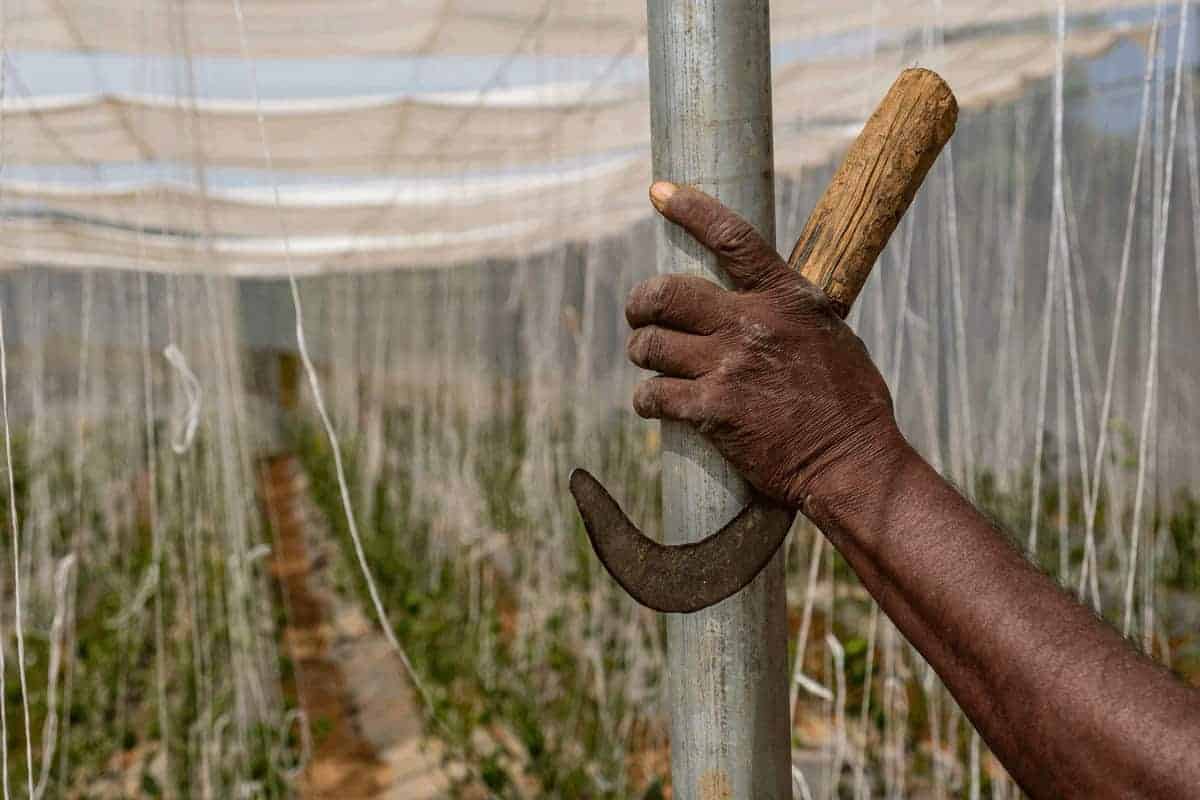
Kheyti
Acumen’s Chief Insights Officer, Amrita Bhandari, joined me on much of the trip and then continued on to visit Kheyti, a greenhouse-in-a-box business that helps smallholder farmers increase their yield—a critical need due to India’s increasing droughts that put existing farmlands at risk.
Kheyti was founded by two Acumen India Fellows and to date has helped farmers grow 7x more food and increase their incomes by 60-100%. She stopped by two farms on the outskirts of Hyderabad; each farmer owned about five acres of land.
Uppari, the first farmer she met, is known as the “Cucumber King” thanks to his delicious crop that’s farmed in one of Kheyti’s greenhouses; he financed his greenhouse with a loan and philanthropy subsidies from Kheyti and has had an excellent season this year. Neerudi, the second farmer, runs two Kheyti greenhouses, rotating his crops to focus on soil fertilization and diversifying his varieties.
Read more about Jacqueline’s site visits in her Moral Leadership newsletter.
